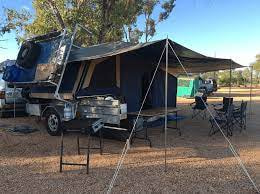The legal framework in the United Kingdom is founded on a historic tradition of precedent-based law, supplemented by acts of Parliament passed by the UK Parliament.

Once both sides have presented their cases, the judge will deliberate and come to a decision. In criminal cases, the judge may deliver a verdict of "guilty" or "not guilty." In civil cases, the judge will determine whether the claimant is entitled to compensation or other remedies. The judge may also issue an order for specific performance or an injunction, depending on the nature of the case.
Ultimately, Northern Ireland’s court structure represent a resilient and independent part of the UK’s
justice framework. While closely tied to the broader UK
get legal help system, Northern Ireland’s courts maintain their own procedures, legislation, and judicial oversight, reflecting the region’s unique identity.
Ultimately, law court procedures in the UK are designed to ensure that justice is delivered fairly and impartially. From filing a claim to appealing a decision, the steps in the legal process are carefully structured to ensure that all parties are treated equitably and that the law is applied consistently. While the process can be complex, the goal is always to uphold the rule of law, protect individual rights, and ensure that justice is served. Whether in criminal or civil court, the procedures in the UK legal system aim to deliver fair outcomes and support the integrity of the judicial system.
Support staff for witnesses. They provide emotional support and help
witnesses feel comfortable while testifying. This is particularly important in cases involving trauma or sensitive matters, such as domestic violence or child abuse. Witness support officers may also guide witnesses through the legal process, ensuring they understand what is expected of them and helping to reduce any anxiety or stress.
In civil matters, the High Court of Justice in Northern Ireland has jurisdiction over complex and high-value cases. It is made up of three divisions: the Queen’s Bench Division, the Chancery Division, and the Family Division. These divisions handle everything from judicial review and commercial disputes to family breakdowns and probate.
Legal education in Northern Ireland is offered through institutions such as Queen’s University Belfast and Ulster University. These universities provide specialised legal training with a focus on both UK-wide and Northern Ireland-specific law.
In criminal law, key rulings are frequently issued by the Crown Court and the Court of Appeal (Criminal Division). These decisions help to clarify the application of criminal statutes and legal principles, such as mens rea (criminal intent) and the rules of evidence.
Take family law for instance, there are differences in how child custody, adoption, and divorce proceedings are handled compared to England or Scotland. The Children (Northern Ireland) Order 1995 is one such piece of legislation that is specific to Northern Ireland and guides child welfare decisions.
Despite these challenges, the Ministry of Justice continues to explore alternative funding models for the UK’s court system. One option being considered is the introduction of alternative funding mechanisms. Some have suggested that introducing new fees or seeking private investment in the judicial system could help alleviate the strain on public finances.
Amidst political change, the legal system must balance tradition with modernisation, autonomy with integration, and independence with cooperation. Whether handling criminal prosecutions, civil claims, or family matters, the courts of Northern Ireland remain vital to upholding justice, safeguarding rights, and maintaining the rule of law for all its citizens.
Courts in the UK operate within a hierarchical structure, meaning decisions from senior courts are followed by lower courts. This principle is known as stare decisis, which ensures consistency and predictability in the law. For those who have virtually any concerns concerning wherever along with how you can use
1to1Legal Directory NI, you are able to call us from our website. A court must follow precedent unless it can distinguish the current case from previous rulings or if a higher court has overruled an earlier decision.
Appeals from the High Court and Crown Court are taken to the Court of Appeal in Northern Ireland. This court reviews cases for legal errors and can overturn or affirm decisions from the lower courts. It has a vital role in interpreting legislation and ensuring consistency in legal judgments across the region.
Throughout the trial, the judge has the responsibility of maintaining order and ensuring that the proceedings are fair. If any legal issues arise that cannot be resolved immediately, the judge may make rulings or request further clarification. In more complex cases, especially those involving expert testimony or large amounts of evidence, the trial may last several days or even weeks.
The highest court in the UK sits at the top of this hierarchy. Its decisions are conclusive and set legal precedent for all other courts. Before 2009, this role was held by the House of Lords, but constitutional reform created the modern Supreme Court to provide enhanced separation between the judiciary and the legislature.
 Once both sides have presented their cases, the judge will deliberate and come to a decision. In criminal cases, the judge may deliver a verdict of "guilty" or "not guilty." In civil cases, the judge will determine whether the claimant is entitled to compensation or other remedies. The judge may also issue an order for specific performance or an injunction, depending on the nature of the case.
Once both sides have presented their cases, the judge will deliberate and come to a decision. In criminal cases, the judge may deliver a verdict of "guilty" or "not guilty." In civil cases, the judge will determine whether the claimant is entitled to compensation or other remedies. The judge may also issue an order for specific performance or an injunction, depending on the nature of the case.
